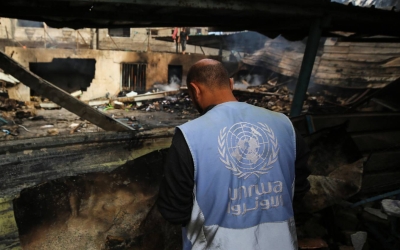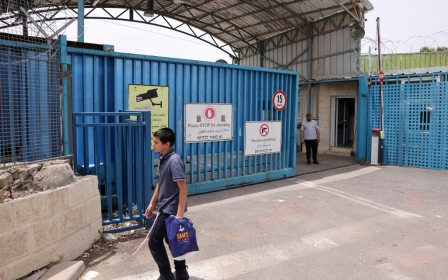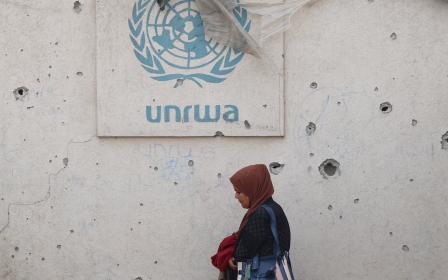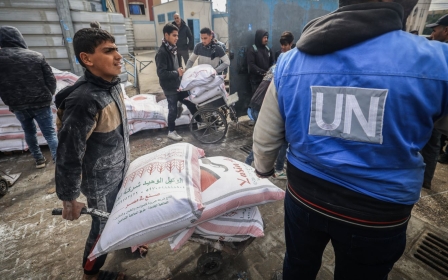Seven Israel allies, including UK and Germany, condemn proposed Unrwa ban
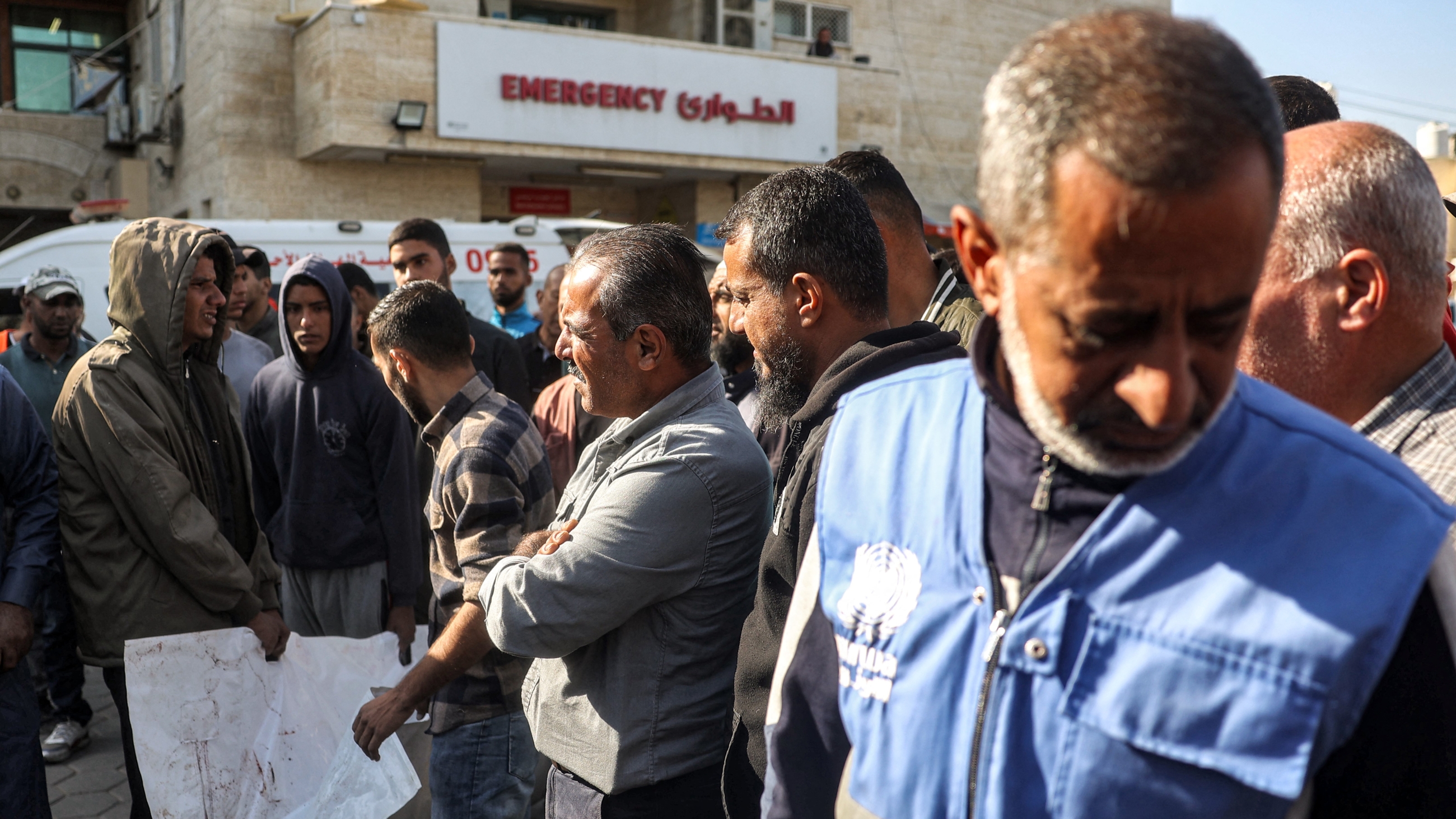
The foreign ministers of seven of Israel's allies have issued a joint statement condemning proposed Israeli legislation to ban Unrwa, the UN agency for Palestinian refugees.
Germany, France, Britain, Australia, Canada, Japan and South Korea warned the bills could have “devastating consequences” in the occupied West Bank and Gaza Strip.
Unrwa is the primary source of humanitarian support for Palestinians in Palestine and neighbouring countries hosting Palestinian refugees.
The proposed legislation, which Israel's parliament, the Knesset, is discussing on Monday, would ban Unrwa from operating in Israel and occupied Palestine.
The bills would prohibit Israeli officials from providing services or dealing with Unrwa employees - and outright ban Unrwa from operating in areas under Israeli control.
New MEE newsletter: Jerusalem Dispatch
Sign up to get the latest insights and analysis on Israel-Palestine, alongside Turkey Unpacked and other MEE newsletters
The joint statement warned: “Without [Unrwa’s] work, the provision of such assistance and services, including education, healthcare, and fuel distribution in Gaza and the West Bank would be severely hampered if not impossible, with devastating consequences on an already critical and rapidly deteriorating humanitarian situation, particularly in northern Gaza.”
The ministers urged Israel to permit UN agencies to carry out their work in Gaza, the West Bank and elsewhere.
Israel's government has long been hostile towards Unrwa. In late January, Israel accused 12 Unrwa workers of involvement in the 7 October Hamas-led attacks, alleging they had distributed ammunition and aided in civilian kidnappings.
A UN inquiry published in April found no evidence of wrongdoing by Unrwa staff, noting that Israel had neither responded to requests for names and information nor "informed Unrwa of any concrete concerns relating to Unrwa staff since 2011".
The foreign ministers noted Unrwa "has taken steps to address allegations regarding individual employees' support" for Palestinian armed groups "and demonstrated its willingness to pursue and implement reform of internal processes".
"We call on Unrwa to continue its path of reform as a priority, demonstrating its commitment to the principle of neutrality, and ensure that its activities remain entirely in line with its mandate," they added.
Reported lobbying
On Monday, an Israeli MP behind the bill accused the United States of lobbying opposition politicians to block the legislation.
CNN reported that the MP, Yulia Malinovsky, said the US ambassador in Israel, Jacob Lew, contacted several opposition leaders, including Yair Lapid and Benny Gantz, to urge them to oppose the legislation.
This comes after Britain’s Middle East minister, Hamish Falconer, warned on Sunday that Israel’s reputation as a democracy would be “deeply harmed” if the legislation is passed.
“Given the agency’s vital role in delivering aid and essential services at a time when more aid should be getting into Gaza,” Falconer said, “it is deeply harmful to Israel’s international reputation as a democratic country that its lawmakers are taking steps that would make the delivering of food, water, medicines and healthcare more difficult.”
The Labour government restored funding to Unrwa in July after the previous Conservative government suspended it on the basis of the Israeli allegations.
Charity Oxfam said on Sunday that the proposed legislation “could see Unrwa evicted from premises it has held for over 70 years and have its immunities revoked, severely blocking its ability to provide essential services such as healthcare and education to millions of Palestine refugees”.
Unrwa services have been severely disrupted since Israel's war on Gaza began. At least 188 Unrwa installations, including shelters, schools and medical facilities, have been hit by Israeli forces, resulting in the deaths of 539 internally displaced people seeking refuge.
Middle East Eye delivers independent and unrivalled coverage and analysis of the Middle East, North Africa and beyond. To learn more about republishing this content and the associated fees, please fill out this form. More about MEE can be found here.


